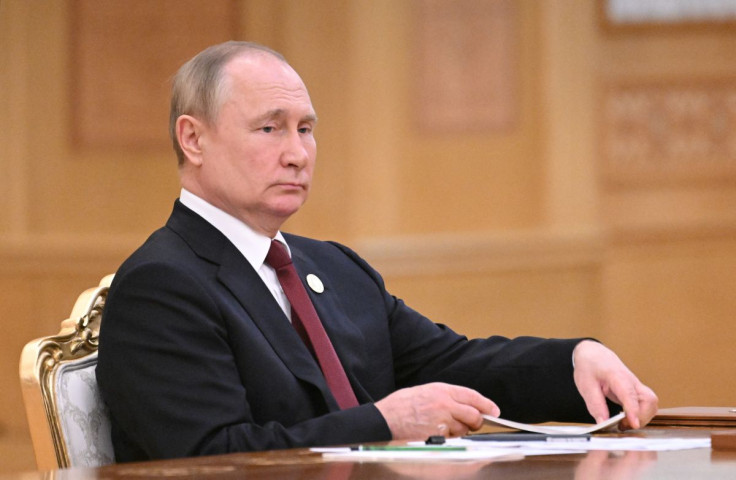Putin Still Wants Most Of Ukraine, War Outlook Grim -U.S. Intelligence Chief

Russian President Vladimir Putin still wants to seize most of Ukraine, but his forces are so degraded by combat that they likely can only achieve incremental gains in the near term, the top U.S. intelligence officer said Wednesday.
Director of National Intelligence Avril Haines, outlining the current U.S. intelligence assessment of the more than four-month war, said that the consensus of U.S. spy agencies is that it will grind on "for an extended period of time."
"In short, the picture remains pretty grim and Russia's attitude toward the West is hardening," Haines told a Commerce Department conference.
Ukrainian President Volodymyr Zelinskiy this week told U.S. President Joe Biden and other G7 leaders that he wants the war over by the end of the year.
But Haines' comments suggested that the billions of dollars in modern arms being supplied by the United States and other countries to Zelinskiy's forces may not give them the ability to turn the tide against Russia any time soon.
She said that Putin remains intent on overruning most of Ukraine even though Ukrainian forces beat back Russia's attempt to capture the capital Kyiv in February, forcing Moscow to reduce its target to seizing the entire eastern Donbas region.
"We think he has effectively the same political goals that we had previously, which is to say that he wants to take most of Ukraine," Haines said.
Russian forces, however, have been so degraded by more than four months of combat that it is unlikely they can achieve Putin's goal any time soon, Haines said in her first public assessment of the war since May.
"We perceive a disconnect between Putin's near-term military objectives in this area and his military's capacity, a kind of mismatch between his ambitions and what the military is able to accomplish," she said.
Haines said U.S. intelligence agencies see three possible scenarios, the most likely being a grinding conflict in which Russian forces "make incremental gains, with no breathrough."
The other scenarios include a major Russian breakthrough and Ukraine succeeding in stabilizing the frontlines while achieving small gains, perhaps near the Russian-held city of Kherson and other areas of southern Ukraine.
It will take years for Russia to rebuild its forces, she said.
"During this period, we anticipate that they're going to be more reliant on assymetric tools that they have, such as cyber attacks, efforts to control energy, even nuclear weapons in order to try to manage and project power and influence globally," Haines said.
"In the interim, Russian troops are unlikely to be able to conduct multiple simultaneous operations," Haines continued.
Putin's priority now, she said, is making gains in the Donbas region and collapsing Ukrainian forces, a development that Russia assesses will "cause the resistance from within to slump."
Haines' comments came after a summit of NATO leaders on Wednesday branded Russia the most "direct threat" to alliance security and vowed to modernize Kyiv's forces, saying it stood behind their "heroic defense of their country."
Russia launched what it calls a "special military operation" against Ukraine on Feb. 24 to eliminate what it deemed a fascist government that threatened its security.
Ukraine, the United States and other countries say Russia is conducting an unjustified war of aggression against its neighbor.
© Copyright Thomson Reuters 2024. All rights reserved.







